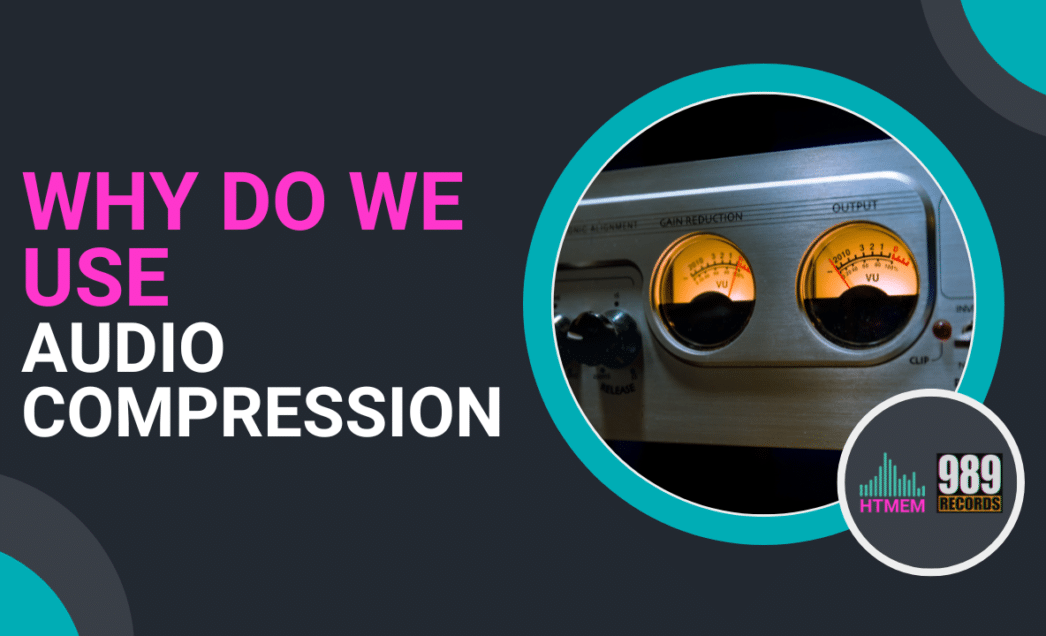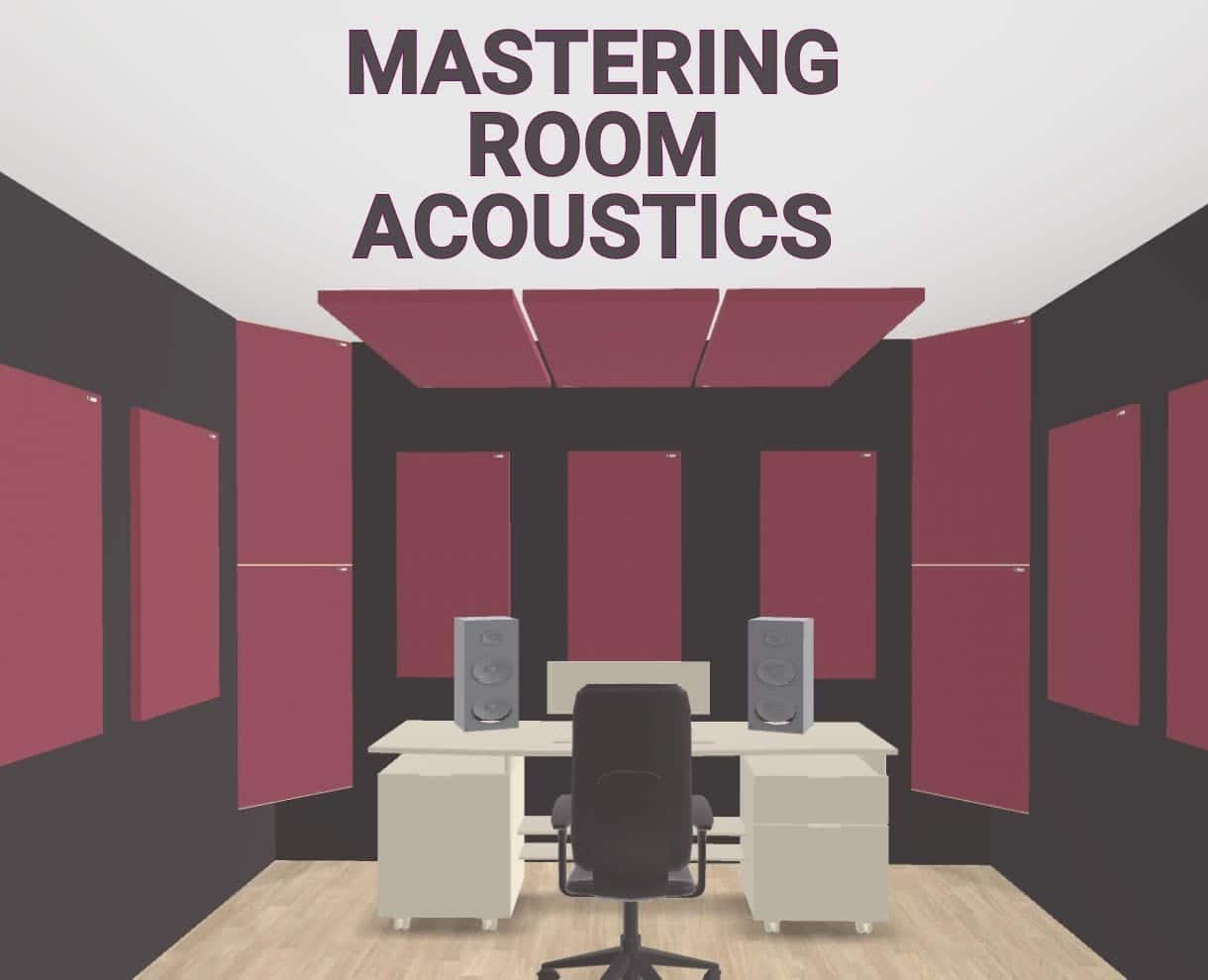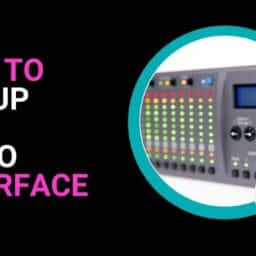Understanding Audio Compression in Music Production
In the Beginning…
There was Jack… Nope sorry, legacies of House Music 😁
Audio Compression was utilized at the outset to send radio signals over greater spans. Since Compressed Analog Audio could procure more power (in terms of WATT), it could broadcast signals over broader distances compared to an uncompressed one.
Compression is regarded as one of the most perplexing and intricate concepts in the arena of audio engineering. One requires significant effort to be educated comprehensively on the concept.
Furthermore, it may be pretty hard to detect the effect of a compressor on sound. For example, it is simpler to notice a chorus or a delay impact than a compressor effect.
Nevertheless, if utilized accurately, audio compressors can shape our recordings and impart a polished, professional, and even-keeled sound.
What does a Compressor do to the Signal?
Compressors are an essential tool for any audio engineer or music producer. An audio compressor reduces the dynamic range of audio signals, making the loudest parts quieter and the quietest parts louder. Have you ever seen a studio without a compressor? They help to even out the dynamics of a signal, allowing us to make our recordings sound more consistent and pleasant to our ears.
Compressors can be used during the recording, mixing, and mastering processes. They belong to dynamic processor families like the limiter, the De Esser, the Brick Wall, Limiter, Maximizers, etc. The input signal interacts with the compressor through settings such as threshold and ratio, which determine how much the signal is compressed and how the dynamic range is reduced.
Essentially, audio compressors reduce the difference between an audio signal’s loudest and quietest parts. In other words, compression reduces the ratio between the strongest to the softest part of a recording.
But, why do we use Compressors for Dynamic Range?
Our ears can better translate the average music volume (RMS) rather than peaks. So, technically, compression can reduce peaks and increase the average volume, giving consistency to a recording (and good food for your ears).
We can say that the sound becomes more intelligible, but with compression, we can also obtain a general tonal balance, focus, and clarity and bring life into a dead sound.
Compression affects the overall sound and dynamics of the entire mix, highlighting its role in achieving a balanced mix where all instruments and effects work together harmoniously.
On the other hand, pay attention!
Compression can suck the life out of a recording, bringing an element back into the mix rather than highlighting it.
Fixing your compression goals and using the right compression type and settings is essential. Bear in mind that compressors can also be used creatively to achieve a wide range of tonal characteristics, from adding punch and warmth to a mix to creating unique sound effects.
What is Audio Compression?
- Audio compression is a process used to reduce the dynamic range of an audio signal, making it easier to control and balance the levels of different elements in a mix.
- It’s a crucial tool in music production, allowing engineers to even out the volume of different tracks and create a more cohesive sound.
- Audio compression can be used to correct imbalances in the audio signal, add punch and energy to drums, and create a more polished overall sound.
- Downward compression specifically lowers excessively loud parts of a track by attenuating signals that exceed a certain threshold, reducing dynamic range and making the overall audio more consistent and manageable.
How Audio Compressors Work
- Audio compressors work by applying gain reduction to the level of an audio signal when it exceeds a specified threshold, and then releasing it back to its original level when the signal drops below the threshold. The threshold level is a critical point in audio processing where compression is applied, affecting which parts of the audio signal are compressed.
- The amount of gain reduction is determined by the ratio setting, which controls how much the signal is turned down.
- The attack and release settings determine how swiftly the compressor reacts to the audio signal and the duration it takes to revert to its initial state.
Types of Audio Compressors
- There are several types of audio compressors, including FET compressors, tube compressors, and VCA compressors.
- Each type of compressor has its own unique characteristics and uses and can be used to achieve different sounds and effects.
- Some compressors, such as the tube sound, are known for their warm and analog sound, while others, such as the FET compressor, are known for their fast and aggressive sound.
- FET compressors utilize transistor circuits to emulate tube sound and manage gain reduction effectively. They are known for their speed and reliability, though they can introduce noise that adds character to the sound.
When to Use Audio Compression
- Audio compression can be used in a variety of situations, including when recording live instruments, mixing a track, and mastering a final mix.
- It’s often used to control the dynamic range of a signal, add punch and energy to drums, and create a more polished overall sound.
- However, excessive compression can lead to a lifeless and over-compressed sound, so it’s essential to use it judiciously.
Using Audio Compression Effectively
Threshold and Ratio
- The threshold setting determines the level at which the compressor starts to reduce the signal, and the ratio setting determines how much the signal is turned down.
- A lower threshold and higher ratio will result in more compression, while a higher threshold and lower ratio will result in less compression.
- It’s essential to find the right balance between threshold and ratio to achieve the desired sound.
Attack and Release
- The attack setting dictates how swiftly the compressor reacts to the audio signal, while the release setting determines the time it takes to return to its original state after compression.
- A fast attack and release will result in a more aggressive sound, while a slow attack and release will result in a more subtle sound.
- It’s essential to adjust the attack and release settings to suit the specific needs of the track.
Makeup Gain
- Makeup gain is used to bring the output signal back up to its original level after compression.
- It’s essential to adjust the makeup gain to ensure that the compressed signal is not too quiet or too loud.
- A good rule of thumb is to adjust the makeup gain so that the compressed signal is the same level as the original signal.
Sidechain Compression
Sidechain compression is a powerful technique used to control the level of one audio signal based on the level of another. This method involves using a compressor with sidechain input, allowing the level of a secondary signal to dictate the compression applied to the primary signal. In music production, sidechain compression is often employed to create a distinctive “pumping” or “ducking” effect, where the volume of one instrument is reduced when another instrument plays.
For instance, a common application is to use sidechain compression to lower the volume of a bass guitar whenever a kick drum hits. This creates a more balanced and controlled low-end, ensuring that the kick drum cuts through the mix without being overshadowed by the bass. Additionally, sidechain compression can be used creatively to produce rhythmic effects, such as making a synthesizer “breathe” in sync with a drum machine.
Setting up sidechain compression involves inserting a compressor on the track you want to control and routing the audio signal of the secondary track to the sidechain input of the compressor. By adjusting the threshold and ratio settings, you can control how much compression is applied to the primary signal based on the level of the secondary signal. This technique is invaluable for achieving a polished and dynamic mix.
Parallel Compression
Parallel compression, also referred to as New York compression, is a method that combines a heavily compressed version of an audio signal with the original, uncompressed signal. This approach allows producers to add punch and energy to a mix without sacrificing the natural dynamics of the individual tracks. By combining the compressed signal with the original, you can achieve a more powerful and controlled sound while retaining the character and nuances of the performance.
To implement parallel compression, start by duplicating the audio track you want to compress. Insert a compressor on the duplicate track and adjust the threshold and ratio settings to create a heavily compressed version of the signal. Next, blend the compressed signal with the original using a mixing bus or a plugin. The key is to find the right balance between the compressed and uncompressed signals, adjusting the ratio to taste.
Parallel compression is particularly effective on drums, vocals, and entire mixes, providing a way to enhance the overall impact without resorting to excessive compression. This technique helps maintain the integrity of the original audio while adding the desired punch and presence, making it a staple in modern music production.
Advanced Techniques
- Sidechain compression is a technique used to compress one signal based on the level of another signal.
- It’s often used to create a pumping effect in electronic dance music, and can be used to add energy and movement to a track.
- Multiband compression is a technique used to compress different frequency ranges of a signal separately.
- It’s often used to control the low end of a mix, and can be used to add clarity and definition to a track.
Best Practices for Audio Compression
- Use compression with purpose and avoid over-compression, which can lead to a lifeless and over-compressed sound.
- Start with subtle settings and adjust to taste, rather than applying excessive compression.
- Trust your ears and instincts when applying compression. Don’t hesitate to experiment and explore new possibilities.
- Remember that compression is a tool, and should be used to enhance the sound of the track, rather than to control it.
Audio Compression FAQ
What is audio compression?
Audio compression is a method employed in music production to manage and shape the dynamics of a track. It reduces the volume of loud sounds and increases the volume of quiet sounds, resulting in a more consistent and balanced sound.
Why is audio compression important?
Compression is an essential tool for achieving a professional-sounding mix. It can help even out inconsistencies in volume, add punch and impact to tracks, and create a cohesive sound across all elements.
When should I use compression?
Compression can be used at various stages in the music production process. It’s commonly used during mixing to balance levels and enhance the overall sound of a track. Compression can also be applied during mastering to add cohesion and polish to a final mix.
Suggested Readings
Set Compression Goals
Feedback and Feedforward Compressors
Compressor Types and Applications
Audio Compression Controls
Why do we use Audio Compression?
Now Practice and Enjoy!








